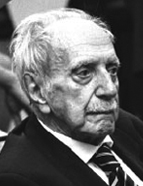

Historical explanation is the finished product of the historian’s craft. Declaring himself opposed to theories, which he often associated with the philosophy of history, he also emphasised the distinction between the work of the historian and that of the sociologist, ironically commenting on disputes over space. Guided by an honest concern for truth, despite his sensitivity to different interpretations, the historian contributed as a man of his time, simultaneously attentive to pitfalls such as the myth of origins, the artificiality of causalities and uchronia. Equally rejecting the relativist attitude he associated with historicism, he did not fall back on erudite factuality, identifying historical interpretation, due to its psychological basis, primarily with imagination. Distinct from pure fiction by its commitment to truth and its ability to problematise, it was not the hallmark of the movement to which he belonged, that of the Annales, but corresponded to the work of great historians such as Michelet, Fustel de Coulanges and Henri Pirenne – and these examples, although all from the French tradition, are clearly very different from each other in terms of intellectual affiliations.
It was through imagination that the historian not only constructed hypotheses, articulated the conclusions of his predecessors and broadened his horizons through the contribution of new techniques, but also identified new relationships between already known “facts” or with new documentary contributions. França clearly valued these, but did not elevate them to a conditio sine qua non of historiography, faithful to Lucien Febvre’s maxim that history is made with documents... when they exist. The influence of the Romanist Jean Gagé was decisive in this regard, reminding him that for more remote periods, the importance of new documents was decreasing and that of the discovery of new relationships was increasing. This should not lead us to conclude, however, that he disregarded sources. On the contrary, Eduardo d’Oliveira França considered them carefully, never produced anything that was not based on them, and even constructed a typology of sources, which he classified as written, oral and material, with subclassifications for urban history. Both of his theses benefit from the intelligent use of sources, which not only illustrate the issues and confirm the author’s points of view, but also effectively support the relationships that the historian establishes and unfolds throughout his interpretation.
This work is financed by national funds through FCT - Foundation for Science and Technology, I.P, in the scope of the projects UIDB/04311/2020 and UIDP/04311/2020.
